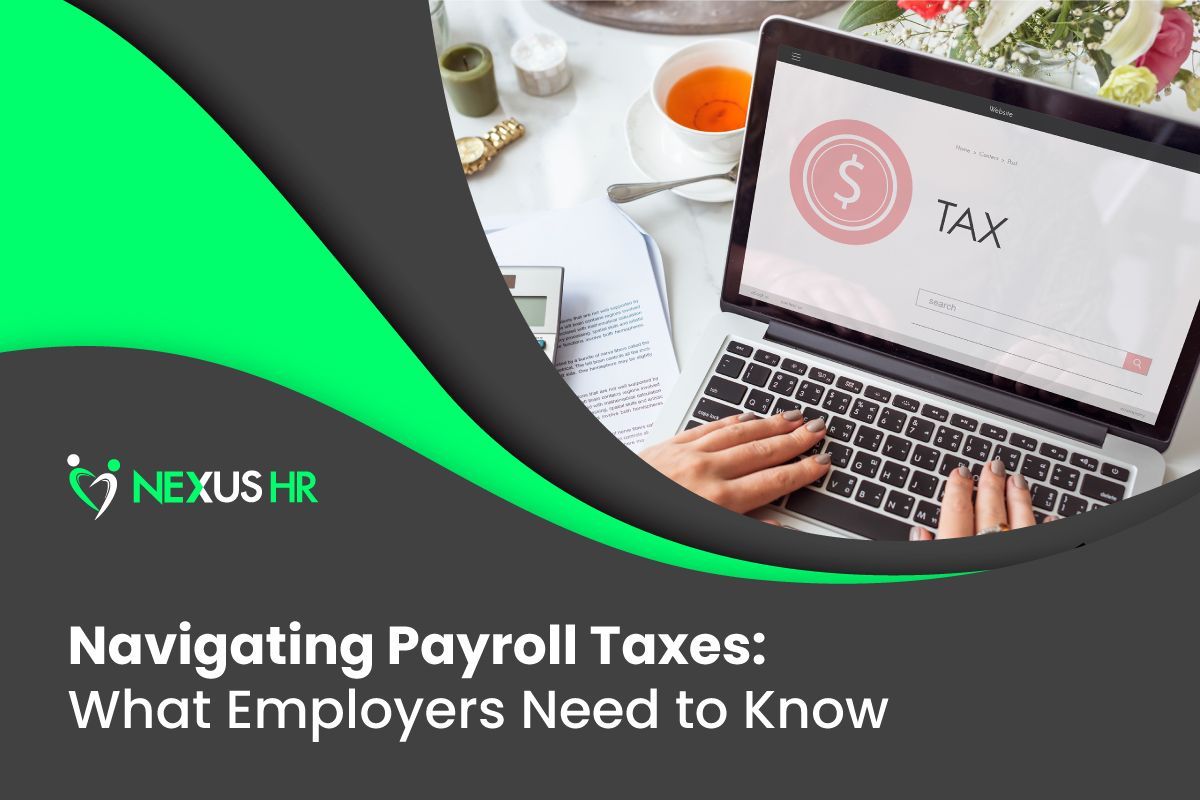Get in touch
877-922-5867
Info@Nexushr.com
877-922-5867
Class of 2023: Understanding Job Market Expectations of Recent Grads
In the next few weeks, the class of 2023 will toss their hats in the air, march out of their comfort zones, and enter the workforce.
Despite having experienced most of their college life through the COVID-19 pandemic, a
recent survey reveals that nearly all (93%) of this year’s graduates are hopeful for their future.
Resilient and adaptable to challenges, the predominantly Generation Z class of 2023 is ready to take on the
uncertain job market that awaits them. What do they expect from future employers? And how do you get the cream of their crop onto your team?
Get to Know the Gen Z Recent Grads

This year’s batch of graduates has undergone something previous batches have not: spending all four years of college life amid a global pandemic.
Interestingly, they’re also the first generation never to know what the world was like without the Internet.
Having experienced the lasting impacts of technological advancements, economic shifts, and pandemic disruptions on their academic and personal lives, Gen Z graduates have developed unique outlooks, values, and priorities. Here are a few that make them stand out:
They Are True Digital Natives
According to marketing and sales expert Rebecca Croucher, Gen Z graduates have fundamentally different skill sets and ways of looking at things from a digital or process automation perspective.
Born from 1995 to 2010, Gen Zs have been surrounded by technology, the Internet, social media, computers, and mobile devices all their lives.
As true
digital natives, Gen Zs are comfortable with and proficient in using modern technology for everyday tasks. In the tech world, they are often credited with the push to embrace industry-changing technologies like
cloud computing, social media, and mobile applications.
Read More:
What is Tech Shame, and How Can Your Company Avoid It?
They Are Practical and Pragmatic
In her research on Gen Z, Stanford anthropologist Roberta Katz describes the generation as highly collaborative, deeply caring about others, and pragmatic toward addressing certain issues.
With a mindset shaped by the challenges, breakthroughs, uncertainties, and complexities of the world they’ve grown up in, the class of 2023 tends to have a strong sense of personal responsibility and a focus on tangible outcomes. They are practical, realistic, and intent on finding solutions to problems.
They Are Racially and Ethnically Diverse
Besides being the largest generation in American history—comprising 27% of the US population—Gen Z is also the most racially and ethnically diverse.
Admissions statistics from multiple American universities show that the class of 2023 is the most diverse ever. In
Cornell, for example, 55% of students admitted for the class of 2023 identify as people of color.
Data collected by the
Annie E. Casey Foundation shows that Gen Z comprises:
- 51% - White
- 25% - Latino or Hispanic
- 15% - Black or African American
- 6% - Asian or Pacific Islander
- 5% - Two or More Races
- 2% - American Indian
They Are Socially Aware
According to a study by Deloitte, Gen Zs are deeply concerned about the state of the world and are actively trying to balance the challenges of their everyday lives with their desire to drive societal change. They are more likely to support causes that align with their values and beliefs.
The following are Gen Z’s top concerns:
- Cost of Living
- Climate Change
- Unemployment
- Mental Health
- Sexual Harassment
With environmental protection being top of mind, 90% of Gen Z and millennials are trying to reduce their environmental impact. And they’re expecting businesses to do so as well.
How to Stand Out from Other Companies in the 2023 Job Market

Now that you know what recent grads are like, what they stand for, and what their job market expectations are, how do you use that information to grow your team?
Here are four things your company can do to attract, hire, and retain brilliant talent among recent graduates:
1. Include Salary and Benefits in Your Job Postings
Gen Z graduates are used to having data at their fingertips, so they’re often characterized as being rational and data-driven in their decision-making.
Recent grads are practical and pragmatic, especially regarding their careers. They are often willing to take on multiple jobs or side hustles to make ends meet.
A study by
Handshake
shows that Gen Z job seekers gravitate toward companies that offer:
- Job Stability (85%)
- Benefits (81%)
- A High Starting Salary (80%)
If you’re looking to get highly driven and qualified talent into your workforce, you need to give them a reason to consider applying to your company. Tell them what you can offer upfront and tip their decision-making in your favor.
Read More:
How to Tackle Employee Benefits for Remote Workers
2. Highlight What You Stand For
“Few things are more important to most members of Generation Z than a corporate commitment to social responsibility on both equity and environmental issues,” says Gartner Vice President of Talent Acquisition Lauren Smith.
As a socially and environmentally conscious generation, most recent grads seek balance and sustainable change even in the companies they work for. According to
Insight Global, Gen Z is more passionate about a diverse and inclusive workplace than any other generation, and they show interest in companies with similar passions.
A recent
Monster study shows that 83% of Gen Z employee candidates say an employer’s commitment to diversity and inclusion is significant when choosing where to work.
To attract and retain Gen Z talent, business leaders like you should shape work models and messaging that meet the expectations of that demographic.
Whether you stand for work-life balance, mental well-being, inclusivity and diversity, environmental protection, or other social causes, highlight it in your organization’s messaging. Let your target audience know they have the opportunity to address societal issues through their work in your organization.
3. Invest in Technology
As true digital natives, technology plays a significant part in how Gen Z graduates discover job opportunities, communicate with talent recruiters, and learn new skills.
If you want to draw in excellent talent from the class of 2023, you must invest in technology and incorporate it into your recruitment, training, and onboarding processes.
According to a study by
Pearson, around 64% of Gen Z college students prefer to learn using technology-driven tools. As a generation of digital natives, Gen Z students are more likely to engage with digital resources, automated processes, and virtual communications than more traditional teaching strategies.
Nexus HR CEO Kris Sen highly recommends leveraging technology to provide the best employee experience possible.
“We use tools to automate recruitment, onboarding, training, and even benefits administration,” Sen says. “It’s paperless, works great for on-site and remote workers, saves time, and improves accuracy.”
Read More:
Employee Training Tips for Successful Onboarding
4. Provide Clear Growth Opportunities
According to Pew Research, Gen Z is on track to be the most well-educated generation yet. They are ambitious, highly motivated, and goal-oriented. By showing recent grads that you can give them opportunities for personal and professional growth, you increase the likelihood of them joining your company and staying there long term.
A
Deloitte study shows that Gen Z employees want to make their voices heard to drive change. Unfortunately, not all of them feel listened to in the workplace, and unless something changes, 47% plan to quit within a year.
When planning growth paths for your staff, allowing Gen Z employees to gain knowledge and share it with others is crucial. In her
study, Roberta Katz states that Gen Zs may be more likely to question rules and authority because they’re so used to finding what they need independently. They also value authenticity and non-hierarchical leadership, which could make reverse mentoring an excellent learning experience for them.
Read More:
What is Reverse Mentoring, and Should My Company Do It?
Get the Best and Brightest on Your Team with Nexus HR

If your company wants to grow your team with goal-driven, tech-savvy, and socially conscious individuals, you’ve got an entire batch of fresh graduates entering the labor market very soon!
However, you need to remember that while you and your ideal employee may meet each others’ job market expectations, you may not be able to find each other in the vast sea of resumés and job postings.
This is where
Nexus HR comes in.
With our experienced team of
recruiting and
HR specialists, Nexus HR can help you discover the hard-to-find talent and high-quality candidates you need.
No matter the position you're looking to fill, Nexus HR can help you grow your team with the best talent.











